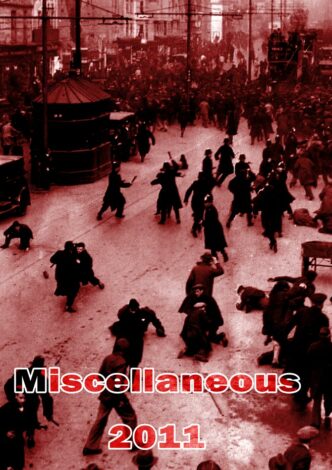Meet the Editor of Minor Compositions – Stevphen Shukaitis
Minor Compositions is a research – theorizing – publishing project whose aim is to bring together, develop, and mutate forms of autonomist thought and practice, avant-garde aesthetics, and an everyday approach to politics. This draws a good deal of inspiration from history of militant research and workers’ inquiry, expanding it beyond inquiry into particular workplaces into a more general investigation of cultural labor, social reproduction, and the relationship between radical politics and […]


